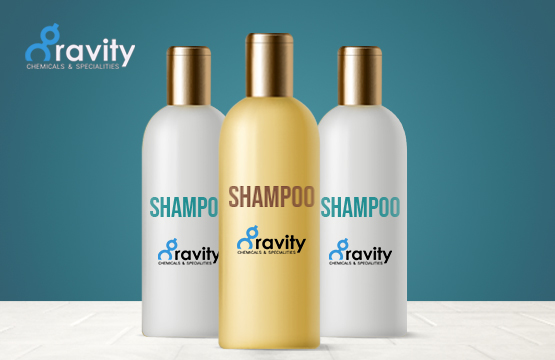The Role of Raw Materials in Shampoo Formulations
Shampoo plays a vital role in our daily hair care health. But what makes a shampoo truly effective? It’s the raw materials or ingredients used in its formulation that deeply impact its cleansing, nourishing, and revitalizing properties. Here we are going to take a deep dive into the world of shampoo raw materials, exploring their importance and how they contribute to the overall effectiveness of hair care products.
Understanding the Key Ingredients in Shampoo
To understand the impact of raw materials on shampoo effectiveness, it’s essential to familiarize ourselves with the key ingredients commonly found in shampoos. These ingredients deliver numerous benefits for our hair and scalp.
- Surfactants: The Backbone of Cleansing Surfactants, such as sodium lauryl sulfate and cocamidopropyl betaine, act as detergents, effectively removing dirt, oils, and impurities from the hair and scalp.
- Conditioning Agents: Nurturing and Hydrating Ingredients like cetyl alcohol, panthenol (provitamin B5), and glycerin provide moisturization, improve manageability, and enhance the overall texture and appearance of hair.
- Fragrances and Essential Oils: Sensory Experience Fragrances and essential oils contribute to the pleasant scent of shampoos, providing excellent sensory experience during and after each wash.
Ingredients for Shampoo
It’s important to consider specific haircare needs, such as dryness, oiliness, or sensitivity while choosing the best ingredients for shampoo, i. Here are some major ingredients:
- Aloe Vera: Soothing and Hydrating Aloe vera possesses hydrating and anti-inflammatory properties, making it an excellent choice for soothing and nourishing the scalp.
- Tea Tree Oil: Anti-Dandruff and Scalp Health Tea tree oil has antimicrobial properties, helping to combat dandruff, relieve scalp irritation, and maintain a healthy scalp environment.
- Argan Oil: Nourishment and Shine Rich in vitamins and fatty acids, argan oil nourishes the hair, adds shine, and helps reduce frizz and split ends.
Frequently Asked Questions about Shampoo Ingredients
- What are some common ingredients to avoid in shampoos? Certain ingredients, like sulfates, parabens, and phthalates, are often best to avoid due to their potential adverse effects on hair and scalp health. Look for shampoos labeled as sulfate-free, paraben-free, and phthalate-free for a healthier option.
- Can I make my own shampoo with natural ingredients? Absolutely! DIY shampoos using natural ingredients like castile soap, aloe vera gel, and essential oils can be a great way to customize your haircare routine and avoid potentially harmful chemicals.
- How can I find the ingredient list of a shampoo? The ingredient list is typically found on the back of the shampoo bottle or on the brand’s website. Look for terms like “ingredients,” “ingredient list,” or “composition” on the packaging or consult the brand’s official website for more information.
- What are the best ingredients for dry shampoo? Dry shampoos are designed to absorb excess oil and refresh the hair between washes. Look for ingredients such as rice starch, tapioca starch, or arrowroot powder, which help to absorb oil and add volume to the hair.
- Can certain shampoo ingredients cause allergic reactions? While rare, some individuals may be sensitive or allergic to certain shampoo ingredients. Common allergens include fragrances, preservatives like methylisothiazolinone (MI), and certain botanical extracts. If you experience any allergic reactions or scalp irritations, discontinue use and consult a healthcare professional.
- Are natural ingredients always better for shampoo? Natural ingredients can be beneficial, as they often have fewer harsh chemicals and may provide nourishing properties. However, it’s important to remember that not all natural ingredients are suitable for everyone, and synthetic ingredients can also be safe and effective. It ultimately depends on your personal preferences and hair care needs.
You must keep in mind that everyone’s hair is unique, and what works for one person may not work for another. It’s essential to experiment and find the best combination of ingredients that provide the desired results for your hair and scalp. Additionally, if you have any concerns or specific hair conditions, consulting with a dermatologist or haircare professional can provide personalized recommendations.
In conclusion, understanding shampoo ingredients and its impact is crucial to selecting the right product for your hair. The factors like hair type, specific concerns, and individual preferences come in play when choosing shampoos. By making well informed choices, you can achieve healthy, beautiful hair with the help of the perfect raw materials in your shampoo.













